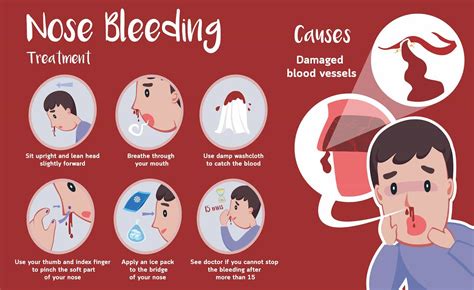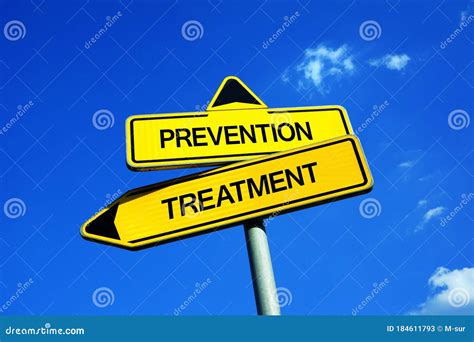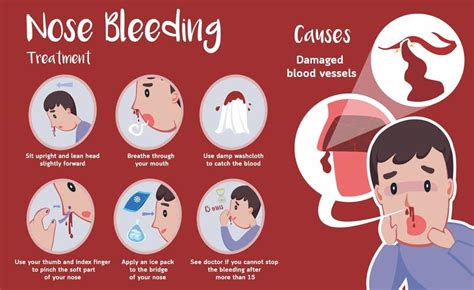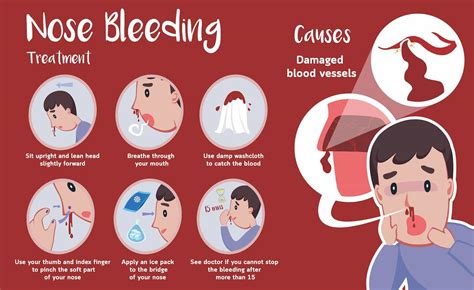Intro
Frequent nosebleeds causes include dry air, allergies, and sinus pressure, with underlying conditions like hypertension and blood disorders also playing a role, affecting epistaxis symptoms and treatment.
Nosebleeds, also known as epistaxis, are a common condition that can occur in anyone, regardless of their age or health status. While they can be alarming, most nosebleeds are not a cause for concern and can be treated easily at home. However, frequent nosebleeds can be a sign of an underlying health issue that needs to be addressed. In this article, we will explore the possible causes of frequent nosebleeds and what you can do to prevent and treat them.
Nosebleeds can be caused by a variety of factors, including dry air, allergies, colds, and injuries. In some cases, frequent nosebleeds can be a sign of a more serious condition, such as high blood pressure, a bleeding disorder, or a tumor. It is essential to identify the underlying cause of frequent nosebleeds to receive proper treatment and prevent complications. If you experience frequent or severe nosebleeds, it is crucial to consult a healthcare professional for proper evaluation and care.
Frequent nosebleeds can be frustrating and affect a person's quality of life. They can be embarrassing, especially if they occur in public, and can also be a sign of an underlying health issue. Understanding the causes of frequent nosebleeds is the first step in preventing and treating them. By knowing the possible causes, you can take steps to prevent nosebleeds from occurring in the first place and seek medical attention if they persist or worsen over time.
Frequent Nosebleeds Causes and Risk Factors

Frequent nosebleeds can be caused by a combination of factors, including environmental, genetic, and health-related factors. Some of the most common causes of frequent nosebleeds include dry air, allergies, colds, and injuries. Dry air can dry out the nasal passages and cause them to become irritated, leading to nosebleeds. Allergies can also cause nosebleeds by irritating the nasal passages and causing them to become inflamed. Colds and other respiratory infections can cause nosebleeds by increasing blood flow to the nose and causing the blood vessels to become fragile.
Other possible causes of frequent nosebleeds include high blood pressure, a bleeding disorder, or a tumor. High blood pressure can cause the blood vessels in the nose to become fragile and prone to bleeding. A bleeding disorder, such as hemophilia, can also increase the risk of frequent nosebleeds. In some cases, a tumor or cancer in the nose or sinuses can cause frequent nosebleeds.
Environmental Factors
Environmental factors can play a significant role in causing frequent nosebleeds. Dry air, for example, can dry out the nasal passages and cause them to become irritated, leading to nosebleeds. Other environmental factors that can contribute to frequent nosebleeds include exposure to chemicals, such as pesticides or cleaning products, and changes in altitude or air pressure.Genetic Factors
Genetic factors can also contribute to frequent nosebleeds. Some people may be more prone to nosebleeds due to their genetic makeup. For example, people with a family history of bleeding disorders, such as hemophilia, may be more likely to experience frequent nosebleeds.Prevention and Treatment of Frequent Nosebleeds

Preventing and treating frequent nosebleeds requires a combination of self-care measures and medical treatment. Self-care measures include keeping the nasal passages moist, avoiding irritants, and using saline nasal sprays. Medical treatment may include cauterization, nasal packing, or medication to control bleeding.
To prevent frequent nosebleeds, it is essential to keep the nasal passages moist. This can be done by using a humidifier, especially during the dry winter months, and avoiding dry air. Avoiding irritants, such as chemicals or tobacco smoke, can also help prevent nosebleeds. Using saline nasal sprays can help keep the nasal passages moist and reduce the risk of nosebleeds.
In some cases, medical treatment may be necessary to treat frequent nosebleeds. Cauterization, which involves using a chemical or electrical cautery to close the blood vessels, may be used to treat recurring nosebleeds. Nasal packing, which involves packing the nose with gauze or special nasal packs, may also be used to control bleeding. Medication, such as nasal decongestants or antihistamines, may be prescribed to control bleeding and reduce the risk of nosebleeds.
Self-Care Measures
Self-care measures can play a significant role in preventing and treating frequent nosebleeds. Keeping the nasal passages moist, avoiding irritants, and using saline nasal sprays can help reduce the risk of nosebleeds. Other self-care measures include avoiding blowing your nose, avoiding bending or lifting, and applying ice to the nose to reduce swelling.Medical Treatment
Medical treatment may be necessary to treat frequent nosebleeds. Cauterization, nasal packing, and medication may be used to control bleeding and prevent recurring nosebleeds. In some cases, surgery may be necessary to treat underlying conditions, such as a deviated septum or nasal polyps, that may be contributing to frequent nosebleeds.Complications of Frequent Nosebleeds

Frequent nosebleeds can lead to several complications, including anemia, infection, and scarring. Anemia can occur if the nosebleeds are severe and frequent, leading to a significant loss of blood. Infection can occur if the nosebleeds are caused by a bacterial or viral infection, such as a cold or sinusitis. Scarring can occur if the nosebleeds are caused by a injury or trauma to the nose.
Other complications of frequent nosebleeds include nasal septal perforation, which can occur if the nosebleeds are caused by a deviated septum or nasal polyps. Nasal septal perforation can lead to chronic nosebleeds, nasal congestion, and loss of smell.
Anemia
Anemia can occur if the nosebleeds are severe and frequent, leading to a significant loss of blood. Anemia can cause symptoms such as fatigue, weakness, and shortness of breath. Treatment for anemia may include iron supplements, vitamin B12 injections, and blood transfusions.Infection
Infection can occur if the nosebleeds are caused by a bacterial or viral infection, such as a cold or sinusitis. Infection can cause symptoms such as fever, headache, and facial pain. Treatment for infection may include antibiotics, nasal decongestants, and pain relievers.Diagnosis of Frequent Nosebleeds

Diagnosing frequent nosebleeds requires a combination of physical examination, medical history, and diagnostic tests. A physical examination may include a visual examination of the nose and throat, as well as a check for any signs of bleeding or trauma. Medical history may include questions about the frequency and severity of the nosebleeds, as well as any underlying medical conditions.
Diagnostic tests may include blood tests, such as a complete blood count (CBC) or blood chemistry tests, to check for any signs of anemia or infection. Imaging tests, such as X-rays or CT scans, may be used to check for any signs of trauma or underlying conditions, such as a deviated septum or nasal polyps.
Physical Examination
A physical examination may include a visual examination of the nose and throat, as well as a check for any signs of bleeding or trauma. The doctor may use a nasal speculum to examine the nasal passages and check for any signs of bleeding or trauma.Medical History
Medical history may include questions about the frequency and severity of the nosebleeds, as well as any underlying medical conditions. The doctor may ask questions about any medications or supplements that may be contributing to the nosebleeds.Treatment Options for Frequent Nosebleeds

Treatment options for frequent nosebleeds depend on the underlying cause and severity of the condition. Self-care measures, such as keeping the nasal passages moist and avoiding irritants, may be sufficient to treat mild nosebleeds. Medical treatment, such as cauterization or nasal packing, may be necessary to treat more severe or recurring nosebleeds.
In some cases, surgery may be necessary to treat underlying conditions, such as a deviated septum or nasal polyps, that may be contributing to frequent nosebleeds. Treatment options may also include medication, such as nasal decongestants or antihistamines, to control bleeding and reduce the risk of nosebleeds.
Self-Care Measures
Self-care measures can play a significant role in treating frequent nosebleeds. Keeping the nasal passages moist, avoiding irritants, and using saline nasal sprays can help reduce the risk of nosebleeds. Other self-care measures include avoiding blowing your nose, avoiding bending or lifting, and applying ice to the nose to reduce swelling.Medical Treatment
Medical treatment may be necessary to treat more severe or recurring nosebleeds. Cauterization, nasal packing, and medication may be used to control bleeding and prevent recurring nosebleeds. In some cases, surgery may be necessary to treat underlying conditions, such as a deviated septum or nasal polyps, that may be contributing to frequent nosebleeds.Conclusion and Next Steps

In conclusion, frequent nosebleeds can be a sign of an underlying health issue that needs to be addressed. Understanding the causes of frequent nosebleeds is the first step in preventing and treating them. By knowing the possible causes, you can take steps to prevent nosebleeds from occurring in the first place and seek medical attention if they persist or worsen over time.
If you experience frequent or severe nosebleeds, it is crucial to consult a healthcare professional for proper evaluation and care. With the right treatment and self-care measures, you can reduce the risk of frequent nosebleeds and improve your overall health and well-being.
We hope this article has provided you with valuable information and insights into the causes, prevention, and treatment of frequent nosebleeds. If you have any questions or concerns, please do not hesitate to comment below or share this article with others who may benefit from it. Remember to take care of your health and seek medical attention if you experience any unusual or persistent symptoms.
What are the most common causes of frequent nosebleeds?
+Frequent nosebleeds can be caused by a combination of factors, including dry air, allergies, colds, and injuries. Other possible causes include high blood pressure, a bleeding disorder, or a tumor.
How can I prevent frequent nosebleeds?
+To prevent frequent nosebleeds, it is essential to keep the nasal passages moist, avoid irritants, and use saline nasal sprays. Other self-care measures include avoiding blowing your nose, avoiding bending or lifting, and applying ice to the nose to reduce swelling.
When should I seek medical attention for frequent nosebleeds?
+If you experience frequent or severe nosebleeds, it is crucial to consult a healthcare professional for proper evaluation and care. You should also seek medical attention if you experience any unusual or persistent symptoms, such as difficulty breathing, chest pain, or severe headache.
